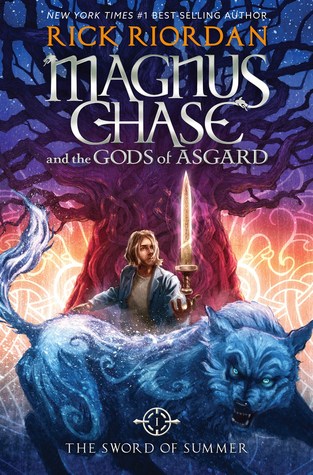 The Sword of Summer Series: Magnus Chase and the Gods of Asgard #1
The Sword of Summer Series: Magnus Chase and the Gods of Asgard #1 on Oct. 6, 2015
Pages: 507
Add to Goodreads

Also in this series: The Hammer of Thor
Magnus Chase has always been a troubled kid. Since his mother’s mysterious death, he’s lived alone on the streets of Boston, surviving by his wits, keeping one step ahead of the police and the truant officers.
One day, he’s tracked down by a man he’s never met—a man his mother claimed was dangerous. The man tells him an impossible secret: Magnus is the son of a Norse god.
The Viking myths are true. The gods of Asgard are preparing for war. Trolls, giants and worse monsters are stirring for doomsday. To prevent Ragnarok, Magnus must search the Nine Worlds for a weapon that has been lost for thousands of years.
When an attack by fire giants forces him to choose between his own safety and the lives of hundreds of innocents, Magnus makes a fatal decision.
Sometimes, the only way to start a new life is to die . . .
Review
Rick Riordan has done it again! The Sword of Summer follows what has become Riordan’s trademark formula: take an ancient mythology and see what would happen if it were real, here and now. It’s a formula that works, in large part because of the imagination and humor Riordan brings to his books. The combination kept me veering from suspense to outright laughter, interspersed with moments of sympathy and even grief.
I worried at first that Magnus would prove to be a Percy knockoff. The two characters share a similar predilection for snark as well as an impulse to protect others, particularly the innocent. Like Percy in his first few books, Magnus has lost his mother. But Magnus is older and little darker; he’s more of a realist, or perhaps a pessimist, than Percy, and thanks to several years spent homeless, he’s far more streetwise and wary.
He’s also (it’s hardly a spoiler at this point) Annabeth’s cousin. I was just hoping for a few passing references to Annabeth, so I was downright delighted to get several whole scenes with her. The scene where the two of them compete for whose life is the weirdest without actually telling each other the truth made me ridiculously happy. And though I have my fingers crossed for a major crossover when this series is finished, there are hints that it might actually take place within this series, which would make me (and a lot of other people) very happy as well.
Riordan has been working to add more diversity to his books, and he does a great job with it in The Sword of Summer. Of course, there’s the built-in diversity of Norse myth, with its frost giants and fire giants and dwarves and elves, but there’s also diversity among the Valkyrie and the einherjar, the fallen warriors brought to Valhalla. Besides Magnus, who is largely of Norse descent, there’s Sam(ira) el-Abbas, a Valkyrie and daughter of a Norse god; T.J., the son of an escaped slave and a Norse god, who fought for the Union; a half-troll; a deaf elf and a dwarf who’s more into fashion than crafting things; an Irish girl. . . you get the idea. And it works really well, because Riordan never makes the mistake of making the character’s race, ethnicity, or disability into their distinguishing characteristic. Sam is from a Muslim family; she wears a hijab, at least when she might see someone she knows (and the hijab itself is more than it appears). But her culture is only one aspect of who she is, and it’s not the most important one — not to Magnus, not to Riordan, and not to the reader. Hearth’s deafness means he communicates with Magnus and Blitz (the dwarf) in ASL, but he’s not a token deaf person by any means. It’s part of him, but it doesn’t define him.
The humor in the book had me literally laughing aloud, and stopping to read choice bits to my husband. Here’s one of my favorites, referring to how a certain magical item was made:
“. . . with the most powerful paradoxes in the Nine Worlds — WiFi with no lag, a politician’s sincerity, a printer that prints, healthy deep-fried food, and an interesting grammar lecture!”
“Okay, yeah,” I admitted. “Those things don’t exist.”
Then there are Magnus’s various comments on the Norse habit of naming, well, pretty much everything. (“Is this potato called Steve?”) And his general snarkiness: when he and some friends literally jump off a cliff, he reflects in the first-person narrative, “Because, you know, what are friends for?” His friends are, for the most part, able to keep up their end: Sam is particularly good at riposte and sarcasm. One of the best bits (not from Sam) is a direct jab at the Percy Jackson series; it’s glorious and much to good to spoil, so you’ll just have to be on the lookout for it. And there are a number of pop-culture references, including to various Marvel and DC superhero franchises, that will make you chuckle as well.
The humor scattered liberally throughout the book helps to balance the rather stark, death-doom-and-glory quality of the Norse mythos. To be honest, I had wondered before I read it whether Riordan could pull this series off, because so much of Norse myth is really dark and fatalistic. I needn’t have worried; Magnus’s snarky irreverence lightens the narrative without detracting from either his determination or his underlying anger at being pulled out of his life without so much as a by-your-leave — even if it wasn’t a very happy one. It’s his mother’s influence that really centers him, despite her absence. Another similarity with Percy, I guess: they both had mothers whose love and presence shaped their personalities for the better. (I would pay good money to see Magnus and Percy build a friendship and trade jokes; if we’re lucky, we’ll get that chance. Probably while they’re both fighting for their lives and the future of the world.)
As for the plot, it’s everything a Riordan fan could want: plenty of well-described action, a series of quests or tasks, encounters with supernatural beings both friendly and unfriendly (and not infrequently untrustworthy), interspersed with short periods for rest, introspection, and character and relationship development. It’s a formula, sure, but a highly successful one — not to mention supremely entertaining. If you loved Riordan’s other books, you’re definitely going to enjoy these. If you haven’t read the others, you can easily jump in here. . . but after you read this book, I recommend backtracking to the preceding series for the sheer fun of it.
CHALLENGES: Fairytale Challenge 2015; PopSugar #8: a funny book
Reading this book contributed to these challenges:
- Fairytale Challenge 2015
- PopSugar 2015 Reading challenge


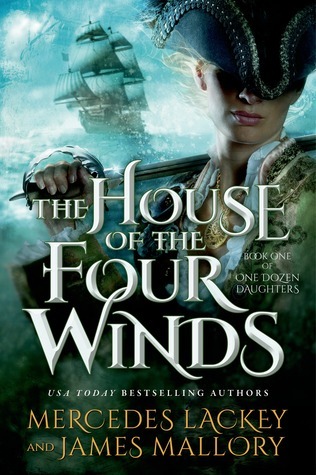

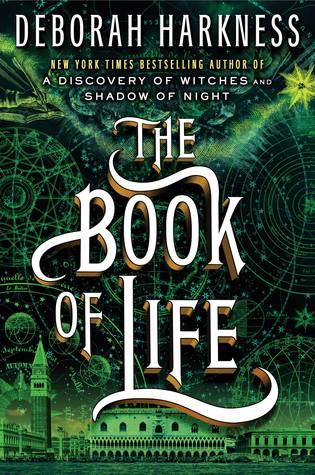

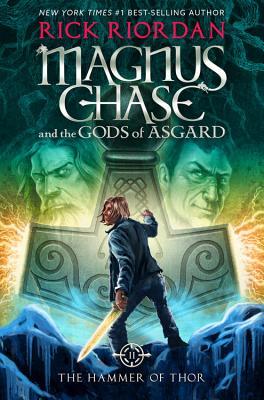


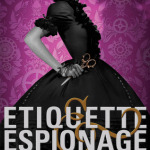


























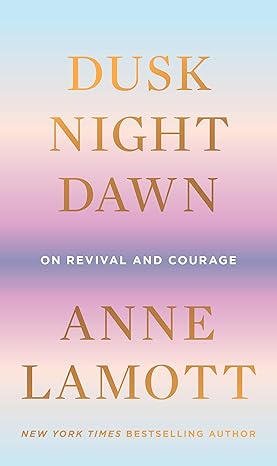
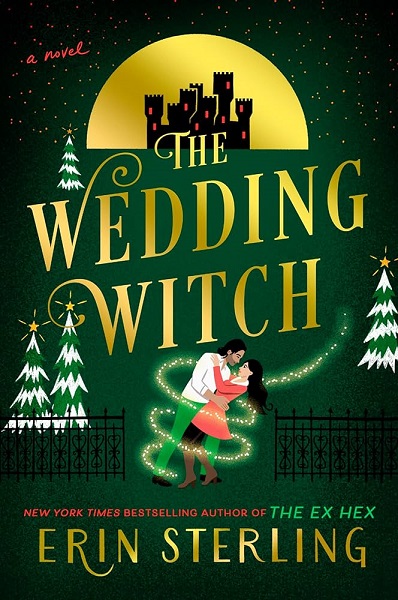









Quinn @ Quinn's Book Nook
I really loved this one too! I was nervous, too, that Magnus would be too much like Percy, but I think he isn’t. And I definitely like the diversity that Riordan has been adding to his books. And seriously this book made me laugh!
Quinn @ Quinn’s Book Nook recently posted…Audio Review: Rock Courtship by Nalini Singh
Lark_Bookwyrm
I’m so glad you loved it too! Did you catch the little interchange where Magnus and the sword are discussing how to disguise the sword? I laughed for like 5 minutes straight. 😀
Bea @Bea's Book Nook
Okay, I haven’t read any Riordan books yet but it sounds as if a lot of the pleasure for you was references and Easter eggs having to do with his other books. Could it be enjoyed as a stand alone?
Bea @Bea’s Book Nook recently posted…Bea Reviews Thankless in Death by J.D. Robb
Lark_Bookwyrm
It could, yes. But it’s true that there are some tie-ins and a few easter eggs. What I’m not sure of is how much the Magnus Chase series might tie in with the previous series later on — I mean, the family connection with Annabeth, a major character in the Greek (Percy Jackson) and Roman (Heroes of Olympus) series, might mean quite a lot of involvement from those heroes, or there could be little or none. So you could certainly read this one without reading the others, but you might later find it helpful. Besides, they’re just plain fun — and pretty fast reading, too.
Bea @Bea's Book Nook
It sounded like there might be cross-over and tie-ins with the other books. I don’t want to read a bunch just to be able to read one book, so this goes on the someday list.
Bea @Bea’s Book Nook recently posted…Bea Reviews Front Runner by Felix Francis
Lark_Bookwyrm
Yes, if you’re not really drawn to picking up the other books, I would hold off for now. The Percy books are worth reading, though – or try them on audio; the reader is excellent. I mean, they’re MG or very early YA, but they’re a lot of fun.
Katherine @ I Wish I Lived in a Library
Why have I not read any Riordan?? It’s getting ridiculous. This sounds like a fun new series and I like that he’s not just another Percy. I probably will start with Percy but it really makes me excited to know that his books continue just as strong. I love starting authors who have bunches of books because if I really like them it’s like Christmas!
Katherine @ I Wish I Lived in a Library recently posted…Beyond the Books: Bad Habits
Lark_Bookwyrm
Definitely start with Percy, because there’s a progression to the books. You can probably skip the Kane Chronicles for now, but if you love the rest of them, go for it. So far, they only tie in to the Percy series through a few cross-over short stories, so you don’t have to read that trilogy in publication order. But the Percy and Heroes of Olympus series need to be read in order, and it would be helpful to read them before reading Magnus — not crucial, but there’s stuff that will be so much more fun if you’ve read the previous books. 🙂
As the Tornado gets older, this would be a great series to share with him. The audiobooks of the Percy series are really good.
Stormi
I have only read two of the Percy Jackson so far, but I really enjoy the author and I want this new series really bad!! 🙂 Great review.
Stormi recently posted…The Week In Review #61
Lianne @ eclectictales.com
I really need to check this book out, I’ve been excited about it ever since I read the initial premise. Glad you enjoyed it! 🙂
Lianne @ eclectictales.com recently posted…Review: The Shards of Heaven